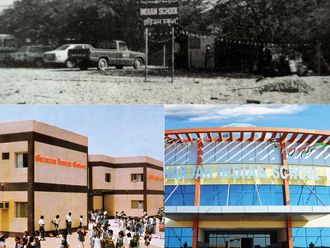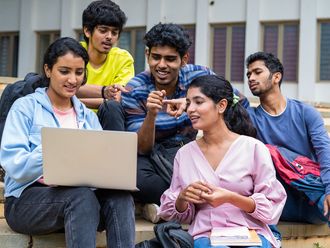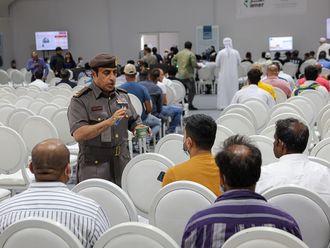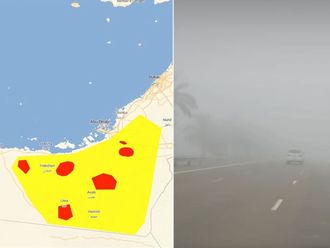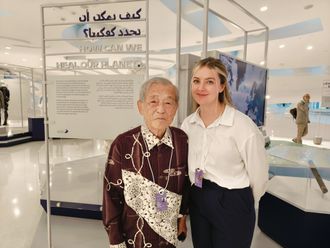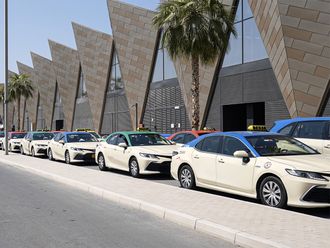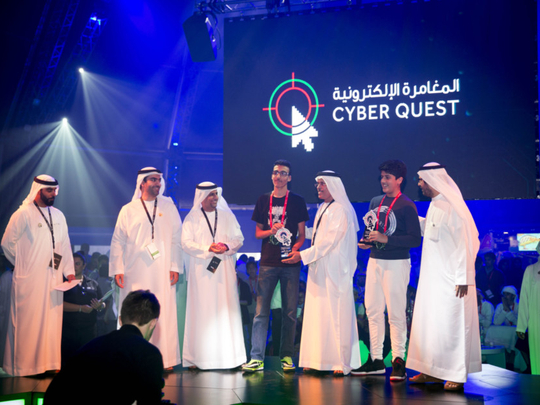
Abu Dhabi: Although the UAE’s online security frameworks are very robust, the threat of hacking cannot be ignored as the country strives to become a leading knowledge economy, a top information technology official said in the capital on Sunday.
“The UAE is working to implement smart government portals for the benefit of its residents, and introduce more and more services online. But these portals and their connected networks must be kept safe and reliable from the attacks of ever smarter hackers and online thieves,” said Abdul Aziz Al Madhloum, head of training at federal cyber security regulator, the National Electronic Security Authority (Nesa).
“We need a generation of cyber warriors who can stay a step ahead of online criminals, and this is why we need to interest and inform our youth of cybersecurity measures,” he added.
To ensure this, the Nesa organised in the capital its annual three-day cybersecurity competition, Cyber Quest, which pits teams of ethical hackers against one another. Through this, participants are taught about the importance of ethical hacking, and how it can help reveal the vulnerabilities of online and computer systems so that they can be resolved.
A total of 60 schoolchildren from public and private institutions across the UAE participated in this third edition of Cyber Quest. The youngest of them was a Grade 7 student. The participants worked in teams of two to crack up to 40 challenges using their knowledge of forensics, programming and scripts in order to hack into networks and servers.
As reported by Gulf News last November (2015), more than two million residents were victims of cybercrime in 2014-2015, losing Dh4.9 billion between them.
“Despite the threats posed by online criminals, every passing year, we note that children are becoming even more knowledgeable about the security threats facing us online. And we want to hone that knowledge and help these cyber enthusiasts develop into savvy online security experts,” Al Madhloum said.
“I believe people are still careless about their online security and don’t take simple measures. For myself, I use a 25-character long password. And I hope to one day become a cyber security expert,” said Yousuf Awad, a Canadian participant from Dubai’s Greenwood International School. Awad won the first prize at Cyber Quest along with his Emirati classmate, Mohammad Hamad.
“The best thing is that we were taught how to think like online attackers. So we can use this knowledge to defend ourselves,” Hamad, who also wants to pursue a career in cybersecurity, added.
Over the next two days, the Nesa will continue to organise trial competitions for interested pupils, and also offer training activities focussing on automobile cyber-attacks, counterfeit detection, forensics and cryptography.




